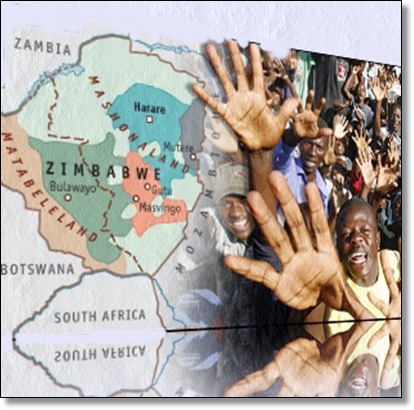Zimbabwe Braces for Change

 |
The manner in which we shall conduct ourselves shall be instructive to the future by laying a solid foundation for transformation in a nation once on the wrench of an internal conflict, for many decades.
We are moving with utmost speed to finalise the Constitution-making process to enable Zimbabweans to go to a national referendum, preferably in the first quarter of 2013. The investment we put into the Constitution-making exercise would go down to nothing unless we all realise that while what is before us is imperfect in some aspects, under the circumstances, it is the best we have managed to put together collectively as a nation.
The generation that fought to liberate this country in the 1960s and 70s brought us the Lancaster Constitution, which despite its limitations has served its purpose for the past 32 years. The people of Zimbabwe have decided that it is no longer relevant to today’s national needs. For that reason, we have an historical obligation to seed a firm, humane and democratic political culture by making this initial step a success. We must have a new Constitution to pave the way for that novel political dispensation we all require.
Future generations will judge us harshly; justifiably passing an unkind verdict, if we falter as we approach the finishing line. You and I know that the road to a new Constitution was always going to be rough and tough; given our differences, our diversity and political persuasions. I am happy to note what now unites us through the current Constitutional draft is far much more than a few prickly issues awaiting grit determination and unity of purpose.
All eligible voters must assume their national responsibility by registering and verifying their names on the roll in readiness for the decisive moment: our elections. The programme ends in early April 2013.
We must embrace a culture of active participation in national affairs. With the right passion, and always together, we can turn Zimbabwe into a place we all desire to live in; to protect; and to bequeath to the future generations with pride.
I appeal especially to the young people of our country, who form the largest group of our population, to take this responsibility seriously and to register to vote. Young people who do not register to vote must be reminded that they are outsourcing an important right which is critical to the determination of their future. They should not be indifferent bystanders while the older generations decide their future. Some of our young people might think that it is not “cool enough” to stand in a queue to register to vote but actually what is not “cool” is to stand aside while other people determine your future.
As leaders, we have publicly pronounced our desire for peace and security in the final stages of this unfolding process in our country. I hope we can walk the talk and ensure that we match our words with concrete action.
We pledge to contain our supporters from engaging in violence of any form; we pledge to embrace tolerance; we promise to honour our rich diversity and to respect our differences in a peaceful and engaging manner. If we, the Principals, can sit down and share our thoughts in a respectful and mature manner, there is absolutely no reason why our supporters and political activists should get angry on our behalf and cause harm to each other.
On our part, as Principals to the GPA, we must match our daily language of peace with decisive action on the ground; we must direct the police force and the Attorney General to exercise their Constitutional mandate by acting impartially and professionally, shunning a partisan and selective application of the law.
All perpetrators of violence and sponsors of public disorder must be brought to book regardless of their political persuasion. I urge our Ministers, parliamentarians, all activists in Zimbabwe’s numerous political parties and all concerned Zimbabweans to take the lead in preaching our non-violence message. The same anti-violence message must be transmitted to the people by civil society, the church and all community leaders. We must demonstrate to the world that we have come of age as a nation and that we can solve our differences peacefully.
Violence shall remain alive in Zimbabwe as long as politicians and the media continue to fan it through insults, hate speech and derision. We have the capacity to help Zimbabweans to understand each other, respect their differences and to celebrate their diversity. Let us start doing so.
By Hon. Morgan R. Tsvangirai.
Prime Minister of Zimbabwe and President of MDC.
